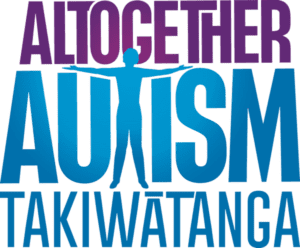
Living at home with family and whānau can be a good option for some people with disabilities. The advantages are being able to offer a supportive, stable, familiar home environment. If living at home is a good option for the person you support, then read below to see what help is available to make their life as independent as possible.
Is the family home fit for purpose?
Everyone wants to feel safe and comfortable in their own home. If you need to modify the family home so it is easier for a person with disabilities to get around, visit our page on home modifications.
Grow your community connections
Get to know your neighbours – you never know when you might need their help and most people are happy to carry out small favours from time-to-time, for example, carrying in a parcel or just need to borrow a cup of sugar! You and the person your support can introduce yourselves face-to-face, or there are also online resources available for getting to know your local community such as Neighbourly or suburban/local Facebook groups you can join. In some areas, you can also trade any useful skills the person you support may have on Timebank get the help you need for free.
Many people with disabilities prefer to get their support from people and organisations which they naturally come into contact with through their own connections – rather than a service-based approach. Developing a mutual relationship with someone can often have the best outcome. For example, if the person you support wanted to attend a hobby group but couldn’t get transport – why not encourage them to call the organiser and see if anyone else attending is willing to pick them up? They could say thanks by helping with petrol or carrying out some extra club admin duties. These sort of reciprocal relationships can often lead to other great community connections.
Help around the house or personal care
If the person you support lives at home, has high needs and is over 18, they might have access to Funded Family Care, which gives payment to parents or family members for providing personal care, such as helping dress, wash and get about, and household support, such as preparing meals and doing laundry. They can’t use this funding to pay a partner or spouse. Talk to your local NASC, who will assess what support is needed to help the person with disabilities to live an everyday life.
If you require a non-family member to carry out care, your NASC will help with choosing a local disability services provider to help you out (you can find a list of all Home and Community Support Services providers on the Home and Community Healthcare Association website). Find out more about Home and Community Support Services or talk to your local NASC.
If the person you support is not eligible for government funding, you may still wish to employ a carer or home-based help. You could advertise, or use a service like MyCare to help match you with a carer who will suit your needs.
Other support and life skills development
If your adult child is wanting to increase their life skills and become more independent (or move out of home) they might be eligible for short-term Supported Living – a service, funded by the Ministry of Health, that helps disabled people to live independently. If they meet the criteria, a tailored package of support will be created. This could include help with daily tasks like shopping, budgeting and support in the community, including help with meetings and dealing with Government agencies. The plan is to help them learn new skills and gain confidence so they will rely less on formal support.
Supported Living cannot be used to support personal care, household management, rehabilitation or vocational services. Find out more about Supported Living from your NASC or on Whaikaha – Ministry of Disabled People website.
Respite breaks for people with disabilities
A change of scene, every now and then, can be really beneficial for well-being. The person you support might have access to funding for respite services, which allows them to take a short-term break at a community-based residence. A respite service should provide a safe, enjoyable environment for them to have a break away from family. There is limited availability, depending on needs and location and you need to talk to your local Needs Assessment Service Coordination organisation (NASC) about whether this service is right for your situation. If the person you support doesn’t have access to respite services, they could consider taking a self-funded holiday to a disability-friendly accommodation provider. The Be.Accessible website also has lots of options for accessible travel, including accommodation, transport and attractions.
Respite for carers (you!)
As a caregiver, it’s important that you are able to take breaks away from looking after the person you support for your own physical and mental wellbeing. Visit our section on Carer and Respite support for information on what support is available and ideas for looking after yourself.





